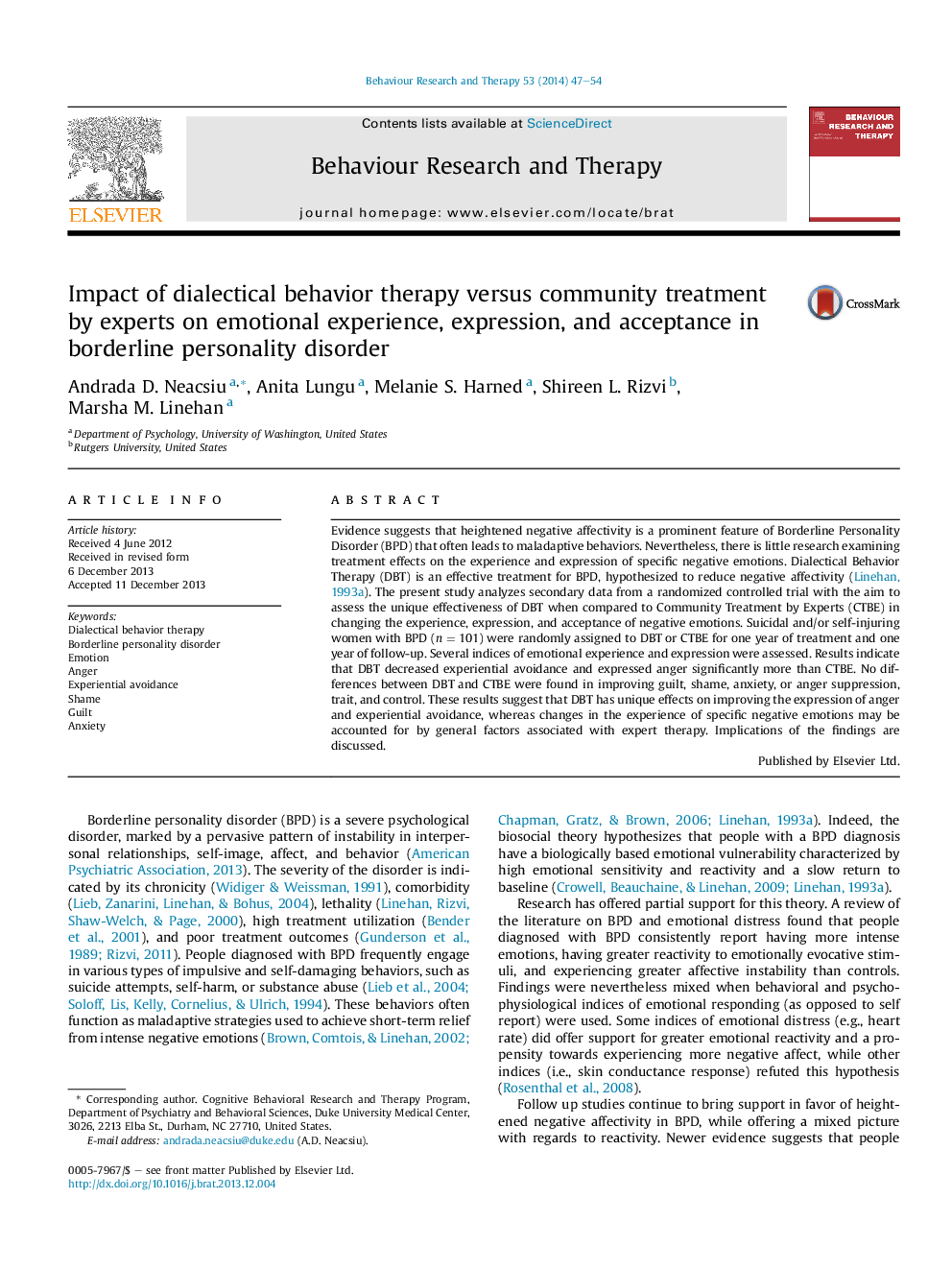| Article ID | Journal | Published Year | Pages | File Type |
|---|---|---|---|---|
| 7262742 | Behaviour Research and Therapy | 2014 | 8 Pages |
Abstract
Evidence suggests that heightened negative affectivity is a prominent feature of Borderline Personality Disorder (BPD) that often leads to maladaptive behaviors. Nevertheless, there is little research examining treatment effects on the experience and expression of specific negative emotions. Dialectical Behavior Therapy (DBT) is an effective treatment for BPD, hypothesized to reduce negative affectivity (Linehan, 1993a). The present study analyzes secondary data from a randomized controlled trial with the aim to assess the unique effectiveness of DBT when compared to Community Treatment by Experts (CTBE) in changing the experience, expression, and acceptance of negative emotions. Suicidal and/or self-injuring women with BPD (n = 101) were randomly assigned to DBT or CTBE for one year of treatment and one year of follow-up. Several indices of emotional experience and expression were assessed. Results indicate that DBT decreased experiential avoidance and expressed anger significantly more than CTBE. No differences between DBT and CTBE were found in improving guilt, shame, anxiety, or anger suppression, trait, and control. These results suggest that DBT has unique effects on improving the expression of anger and experiential avoidance, whereas changes in the experience of specific negative emotions may be accounted for by general factors associated with expert therapy. Implications of the findings are discussed.
Keywords
Related Topics
Health Sciences
Medicine and Dentistry
Psychiatry and Mental Health
Authors
Andrada D. Neacsiu, Anita Lungu, Melanie S. Harned, Shireen L. Rizvi, Marsha M. Linehan,
